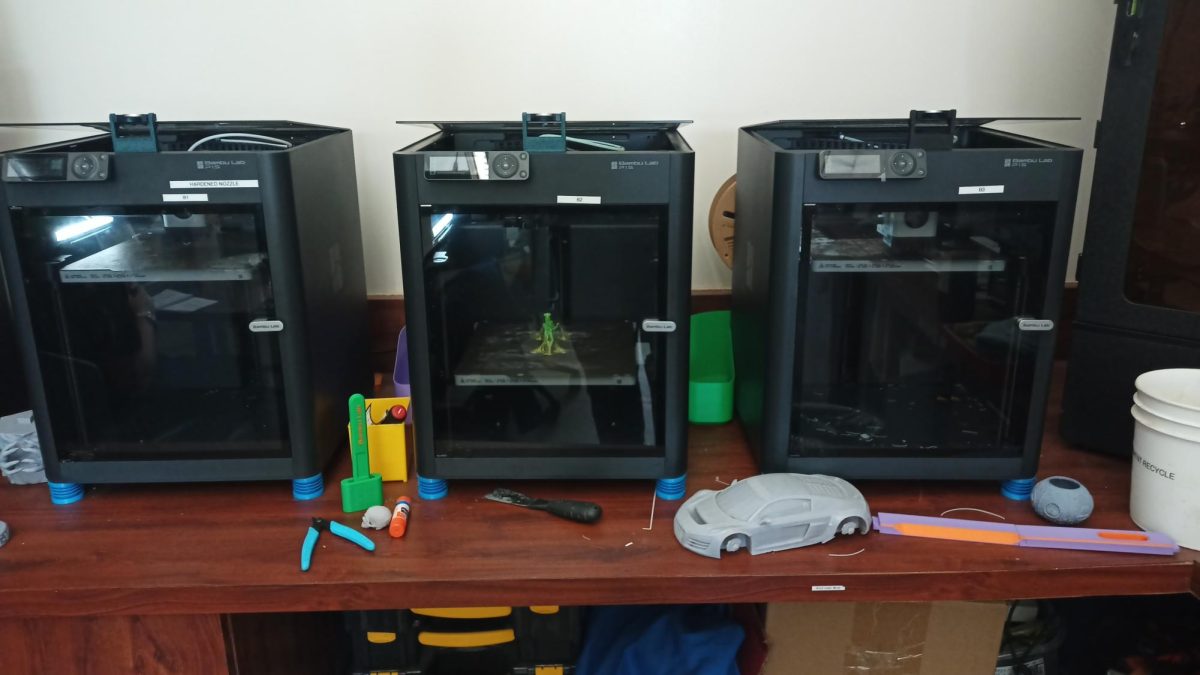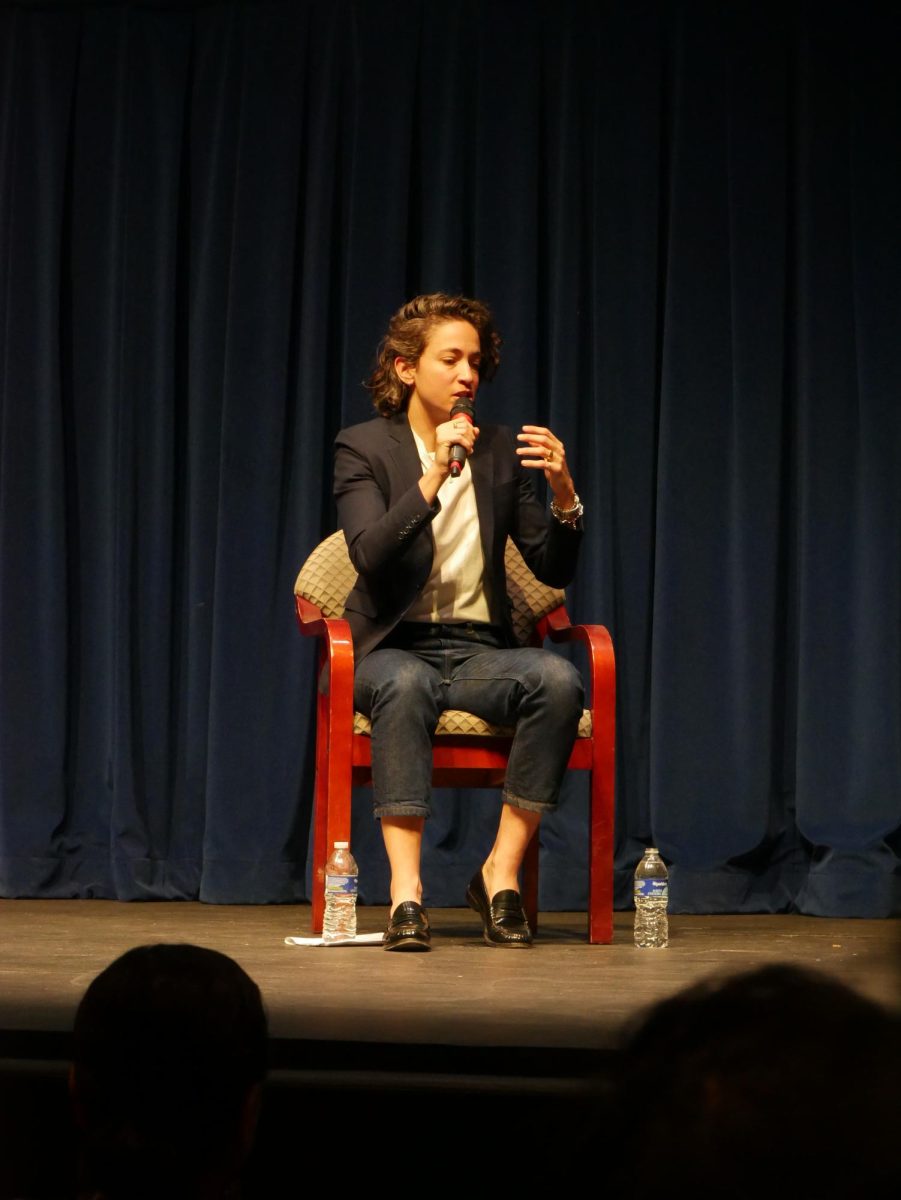Citizens of the United States have suffered at least 16 mass shootings during the past 12 months. Tragic events such as: the Clackamas Town Mall shooting; Aurora, Colorado movie theater shooting; and Newtown, Connecticut have garnered many questions regarding the strength of this country’s gun regulations. After the Taft Union High School shooting occurred, Bakersfield’s residents grew more concerned about their safety and those close to them.
The Kegley Institute of Ethics partnered with CSUB to host a gun violence panel to discuss possible causes and solutions for the ongoing struggle with gun control. “Gun Violence: Causes and Cures” was a public event held on Feb. 20 in the Student Union.
The discussion was moderated by Dr. Christopher Meyers, Director of the Kegley Institute of Ethics and philosophy professor at CSUB. The panel consisted of radio personality Ralph Bailey of KNZR’s Ralph Bailey Show (who resigned the next day for reasons unconnected with the discussion and is now with KERN); Bakersfield Police Department’s Chief of Police Greg Williamson; Dr. Brik McDill, Senior Psychologist for the California Correctional Institute; and Terry Phillips, a former war correspondent, journalist and community activist who ran unsuccessfully against Rep. Kevin McCarthy (R. Bakersfield) in November.
CSUB students, faculty, staff and citizens from the community gathered early waiting to hear the ideas and suggestions offered by some of the town’s public figures.
After an introduction by Meyers, McDill began the discussion with a mental health perspective.
“A ‘one size fits all solution’ is unreal,” he said.
McDill provided statistical data to explain the effects mental illnesses have on mass shooters. For example, 34.7 percent of people diagnosed with drug abuse and dependency issues had committed violent crimes.
Although a specific resolution was not given, McDill did tell the audience to “know what you’re talking about to create a solution, or it will be ineffective.”
Williamson offered more statistics about the amount of violence in recent years, specifically in Kern County. According to Williamson, there has been an overall decrease of violence in Bakersfield within the past several years despite the fact that the amount of homicides increased from 14 in 2011 to 34 in 2012.
Contradictory to McDill’s suggestion, in regards to gun control, Williamson said, “[The country] needs to have a uniform policy. People with guns need to be responsible gun owners. Some ways to be responsible include; locking guns away, becoming well-trained in shooting and gun safety, and also being trained when hunting.”
The need for more personal responsibility is of increasing importance since more than 47 percent of homes now have guns in them, according to Williamson.
Similar to McDill’s idea, Phillips believed that to solve violence one must look at the cause of violence. Some causes for gun violence he gave include poverty, ignorance, greed, and mental illness.
According to the Centers for Disease Control and Prevention website, there were 16,259 homicides last year. Of those homicides, 11,078 involved a firearm.
Despite the large amount of cases involving guns, many stories do not get public attention because they are “not sensational.” Phillip expressed his opinion on the mass shooting stories by saying, “[The media] exaggerates the problem because it makes great headlines.”
The former war correspondent, Phillips, went on to say he does not “advocate to eliminate or drastically reduce the amount of guns.”
“I do not think we should try to get rid of all guns,” said Phillip, “I do think we should stop treating guns as a universal right.”
Agreeing with Williamson, Phillip said a universal response is an accurate way to address the gun violence problem.
Radio personality Ralph Bailey was the last to share his views on the recent trend in gun violence.
Bailey started by expressing his disdain for firearms after watching guns destroy his community. However, in light of the new assaults that have taken place, he has begun to wonder: “Should we [the United States] rearm or go the other way?”
As Bailey puts it, “You don’t bring a knife to a gun fight.”
Like Phillips, Bailey also said the media plays a major role in the affects that gun violence has had on American citizens. He explained that the mass shootings are relatable because it could happen to most members of the community as opposed to gang killings. Gang killings, which Bailey referred to as “casual violent confrontations,” tend to happen more frequently in poverty-stricken neighborhoods and no longer garner as much attention.
Although Bailey admitted to being “queezy about guns in schools,” he said he “wished they had a weapon in Taft.” He elaborated on this statement by saying, “I want to have a fighting chance. I want my kids to have a fighting chance.”
He offered another way to combat the string of gun violence as well as help prevent future attacks by urging everybody to become “nosy neighbors.” People need to be aware of what’s happening within their community and report suspicious activity.
Bailey closed with, “It’s an ugly reality, but it’s one we have to face.”







